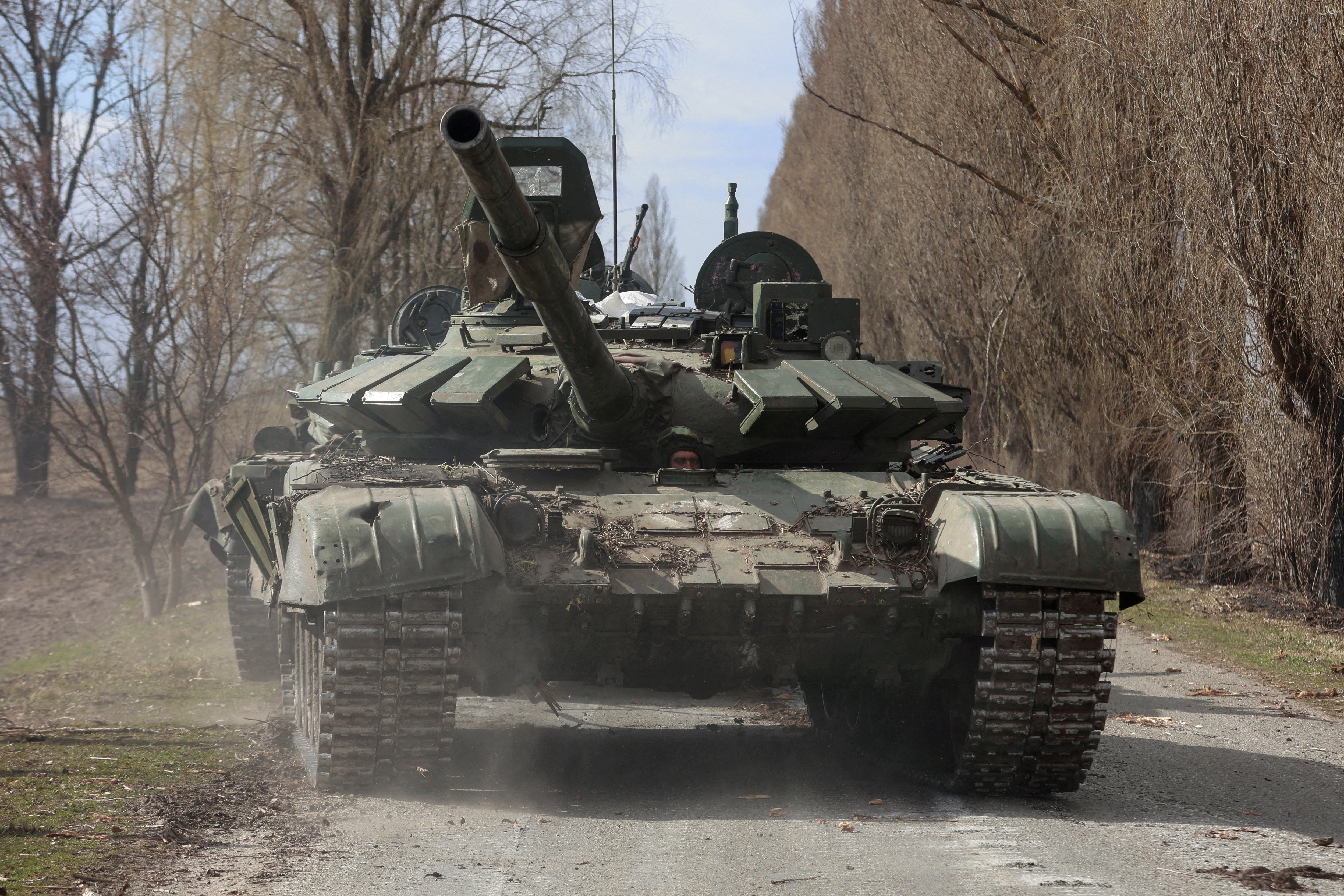Czech Republic becomes first Nato country to send tanks to Ukraine
Reported shipment comes weeks after Kyiv’s first request for tanks and planes

The Czech Republic has reportedly sent tanks to Ukraine, becoming the first Nato member to fulfil Kyiv’s request for the heavily armoured vehicles.
Online footage - first broadcast by Czech Television - appeared to show a train carrying five T-72 tanks and five BVP-1 infantry fighting vehicles. The outlet reported that the Czech government had signed the donation off with its Nato allies.
Ondrej Benesik, who runs the Czech lower house’s European affairs committee, confirmed the accuracy of the report, according to the broadcaster. So did a defence source, who told Reuters they could not give further details because of security concerns.
The development comes weeks after Ukrainian president Volodymyr Zelensky first urged the west to send tanks and planes to help his country fight against Russian troops.
Speaking late last month, Mr Zelensky said Ukraine could not wait any longer for heavier weaponry, saying Nato’s fear of Moscow was responsible for the delay.
Ukraine’s leader claimed his country only needs one per cent of its aircraft and tanks to hold off the invading forces.
Mr Zelensky added that Nato’s jets and tanks were gathering dust and could be put to better use. “This is all for not only the freedom of Ukraine, but for the freedom of Europe,” he said.
In March, the US blocked a plan for Poland to transfer 28 Soviet-designed MiG planes to Ukraine over fears it could draw Nato into the war.
As recently as this week, some of its Nato allies seemed to blame Washington for holding up efforts to send tanks to Mr Zelensky’s army. One source said America was “not minded” to back the supply of T-72 vehicles to Ukraine.
However, the reported shipment of these tanks from the Czech Republic suggests the US’ doubts have to some extent been assuaged.
Speaking in the Czech parliament, the defence minister Jana Cernochova did not confirm or deny the report.
“I will only assure you that the Czech Republic…is helping Ukraine as much as it can and will continue to help by (supplying) military equipment, both light and heavy,” she said.
The country has sent $45 million (£34.4m) in military aid to Ukraine since Vladimir Putin ordered his troops to invade the country on 24 February.
Nato allies will meet on Wednesday and Thursday to discuss the delivery of more weapons to Ukraine, said Jens Stoltenberg, the alliance’s secretary general.



Join our commenting forum
Join thought-provoking conversations, follow other Independent readers and see their replies
1Comments